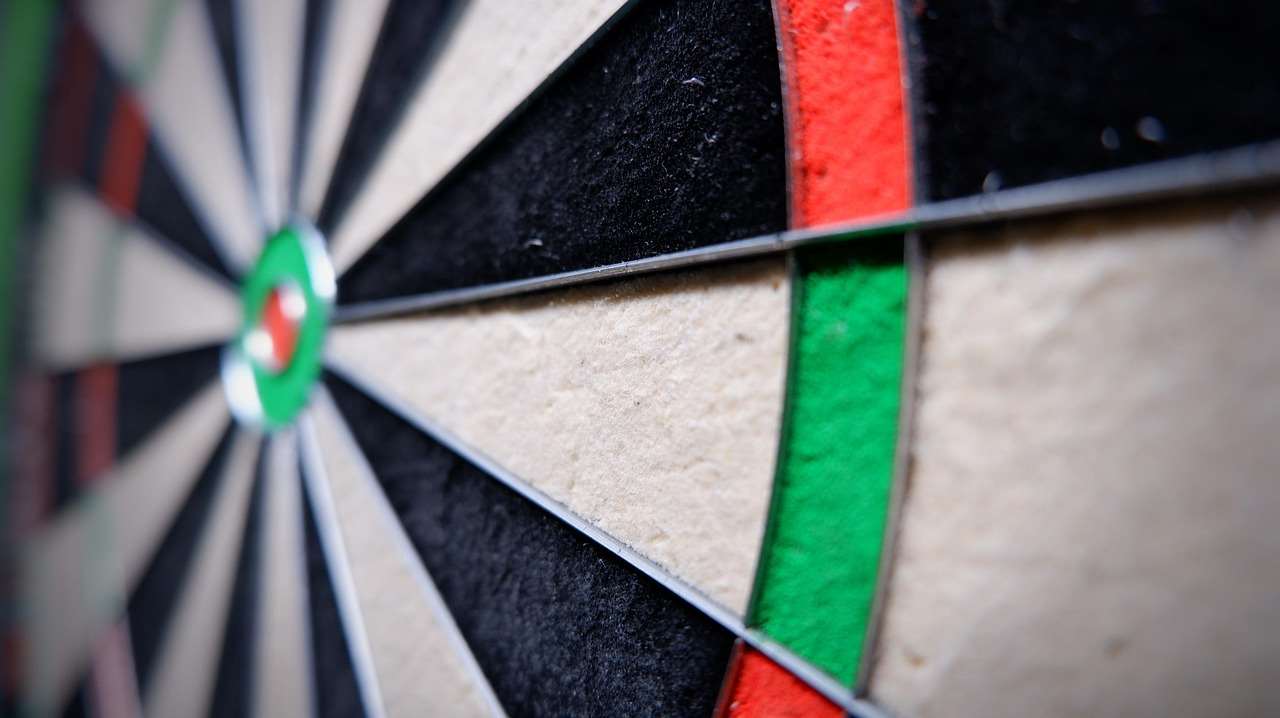Responsible Gambling For Adults means engaging in betting and wagering activities in a way that doesn’t negatively impact your finances, relationships, or mental health; it’s about staying in control. This article explores the key principles of responsible gambling, provides practical strategies for staying safe, and highlights resources available to those who need support.
⚠️ Still Using Pen & Paper (Of een schoolbord)?! ⚠️
Stap in de toekomst! De Dart Teller -app behandelt alle scoren, stelt kassa voor, en volgt uw statistieken automatisch. It's easier than you think!
Probeer de Smart Dart Teller -app gratis!Klaar voor een upgrade? Klik hierboven!
Understanding Responsible Gambling For Adults
The concept of Responsible Gambling For Adults revolves around awareness, control, and prevention. It’s about recognizing the potential risks associated with gambling and taking proactive steps to minimize those risks. It isn’t about abstaining from gambling altogether, but rather engaging in it in a healthy and sustainable manner. We’ll delve into the factors that contribute to responsible gambling and how you can integrate them into your own habits.

One critical element is understanding the odds and probabilities involved in various games. Many people gamble with unrealistic expectations of winning, leading to chasing losses and overspending. Education is key to making informed decisions and avoiding these pitfalls. It’s also about understanding the difference between luck and skill, particularly in games where skill can play a role but luck still dominates.
Setting Limits: The Cornerstone of Responsible Gambling
One of the most effective strategies for responsible gambling is setting clear and strict limits. These limits should encompass both time and money. Before you even begin gambling, decide how much you’re willing to spend and how long you’re willing to play. It is also helpful to learn about Darts gok en fantasiecompetities gids.
Financial Limits
- Budgeting: Determine a gambling budget that you can comfortably afford to lose. This should be separate from essential expenses like rent, bills, and groceries.
- Deposit Limits: If you gamble online, take advantage of the deposit limit features offered by most platforms. These allow you to restrict the amount of money you can deposit within a specific timeframe.
- Loss Limits: Decide on a maximum loss amount and stick to it. Once you reach that limit, stop gambling, even if you feel like you’re “due” for a win.
- Withdrawal Strategy: Have a plan for withdrawing winnings. Don’t be tempted to reinvest everything you win. Consider withdrawing a portion of your winnings to enjoy the fruits of your labor.
Time Limits
- Session Duration: Set a timer to limit the amount of time you spend gambling in a single session. Long sessions can lead to impulsive decisions and poor judgment.
- Frequency: Limit how often you gamble. Don’t let it become an everyday activity. Treat it as a form of entertainment to be enjoyed occasionally.
- Breaks: Take frequent breaks during gambling sessions. Step away from the game, stretch, and clear your head. This helps maintain focus and avoid fatigue.
Recognizing the Signs of Problem Gambling
It’s crucial to be aware of the warning signs of problem gambling, both in yourself and in others. Early detection and intervention can prevent serious consequences. Some common signs include:

- Chasing Losses: Trying to win back money you’ve lost by gambling more.
- Gambling with Increasing Amounts: Needing to gamble with larger sums of money to achieve the same level of excitement.
- Preoccupation with Gambling: Thinking about gambling constantly, even when you’re not doing it.
- Lying about Gambling: Hiding your gambling activities from family and friends.
- Neglecting Responsibilities: Gambling instead of going to work or school, or taking care of family obligations.
- Borrowing Money to Gamble: Using loans or credit cards to fund gambling activities.
- Feeling Restless or Irritable: Experiencing these feelings when trying to cut down or stop gambling.
If you recognize any of these signs in yourself or someone you know, it’s important to seek help. Resources are available to provide support and guidance.
Strategies for Maintaining Control
In addition to setting limits and recognizing warning signs, there are several other strategies you can use to maintain control over your gambling. These strategies focus on changing your behavior and mindset around gambling.
Avoid Gambling When Emotional
Avoid gambling when you’re feeling stressed, depressed, angry, or lonely. Emotions can impair your judgment and lead to impulsive decisions. Seek healthy ways to cope with difficult emotions, such as exercise, spending time with loved ones, or talking to a therapist.
Don’t Gamble Under the Influence
Alcohol and drugs can significantly impair your judgment and increase your risk of making poor decisions while gambling. Avoid gambling when you’re under the influence of any substance.
Only Gamble with Disposable Income
Never gamble with money that you need for essential expenses. Only gamble with money that you can afford to lose without impacting your financial stability.
Treat Gambling as Entertainment, Not a Source of Income
Gambling should be viewed as a form of entertainment, not a way to make money. Don’t rely on gambling to pay your bills or supplement your income.
Be Aware of Cognitive Biases
Cognitive biases are mental shortcuts that can lead to irrational thinking and poor decision-making. Common biases that can affect gambling behavior include:
- The Gambler’s Fallacy: The belief that if something hasn’t happened in a while, it’s more likely to happen soon. Bijvoorbeeld, believing that if a coin has landed on heads several times in a row, it’s more likely to land on tails next.
- The Illusion of Control: The belief that you have more control over the outcome of a game than you actually do.
- Loss Aversion: The tendency to feel the pain of a loss more strongly than the pleasure of an equivalent gain. This can lead to chasing losses in an attempt to avoid the pain of losing.
Being aware of these biases can help you make more rational decisions when gambling.
The Role of Online Gambling Platforms
Online gambling platforms have a responsibility to promote responsible gambling for adults and provide tools to help users stay in control. Many platforms offer features such as:
- Deposit Limits: Allow users to set limits on how much money they can deposit within a certain timeframe.
- Loss Limits: Allow users to set limits on how much money they can lose.
- Self-Exclusion: Allow users to ban themselves from the platform for a specific period of time.
- Time Limits: Allow users to set reminders or limits on how long they can play.
- Reality Checks: Provide users with regular reminders of how long they’ve been playing and how much they’ve spent.
- Links to Support Resources: Provide links to organizations that offer help for problem gambling.

Responsible online gambling platforms also employ measures to prevent underage gambling and combat fraud. They also often factor into Betting Company Logos Player Shirts, and other forms of marketing.
Seeking Help and Support
If you’re struggling with problem gambling, it’s important to seek help. There are many resources available to provide support and guidance. Some options include:
- Gamblers Anonymous: A support group for people with gambling problems.
- National Problem Gambling Helpline: A confidential helpline that provides information and support.
- Therapists and Counselors: Mental health professionals who specialize in treating gambling addiction.
- Family and Friends: Talking to trusted family members or friends about your struggles.
Herinneren, seeking help is a sign of strength, not weakness. With the right support, you can overcome problem gambling and regain control of your life. There is also the Hoe gokbedrijven sponsoren sponsoren which can create awareness.
The Impact of Gambling Advertising
Gambling advertising can have a significant impact on gambling behavior, particularly for vulnerable individuals. Responsible advertising practices are essential to minimizing harm.
Some key principles of responsible gambling advertising include:
- Avoiding Misleading Claims: Advertising should not exaggerate the chances of winning or create unrealistic expectations.
- Targeting Adult Audiences: Advertising should not target children or adolescents.
- Promoting Responsible Gambling: Advertising should include messages about responsible gambling and provide links to support resources.
- Avoiding Sensationalism: Advertising should not sensationalize gambling or portray it as a glamorous or exciting lifestyle.
Increased awareness of Weddenschap sponsoring impact op darts and responsible advertising are critical.

Long-Term Strategies for Responsible Gambling
Responsible gambling for adults isn’t a one-time decision but a continuous process. Maintaining healthy habits requires ongoing effort and self-awareness. Here are some long-term strategies:
- Regularly review your gambling habits and make adjustments as needed.
- Stay informed about the latest research and best practices in responsible gambling.
- Continue to utilize the tools and resources available to help you stay in control.
- Seek ongoing support from family, friends, or support groups.
- Celebrate your successes and learn from your setbacks.
By adopting these strategies, you can enjoy gambling as a form of entertainment without risking your financial stability, relationships, or mental health.
Conclusie
Responsible Gambling For Adults is all about enjoying the thrill of the game while staying in control. By understanding the risks, setting limits, recognizing warning signs, and seeking help when needed, you can gamble safely and responsibly. Remember that gambling should always be viewed as a form of entertainment, not a source of income or a way to escape problems. Take action today to implement these strategies and ensure that your gambling remains a positive and enjoyable experience. If you’re concerned about your gambling habits, don’t hesitate to seek help from a qualified professional or support group.
Hoi, Ik ben Dieter, En ik heb Dartcounter gemaakt (Dartcounterapp.com). Mijn motivatie was geen darts -expert - helemaal tegenovergestelde! Toen ik voor het eerst begon te spelen, Ik hield van het spel, maar vond het moeilijk en afleidend om nauwkeurige scores te houden en statistieken te volgen.
Ik dacht dat ik niet de enige kon zijn die hiermee worstelde. Dus, Ik besloot om een oplossing te bouwen: een eenvoudig te gebruiken applicatie die iedereen, Ongeacht hun ervaringsniveau, zou kunnen gebruiken om moeiteloos te scoren.
Mijn doel voor Dartcounter was eenvoudig: Laat de app de nummers afhandelen - het scoren, de gemiddelden, de statistieken, Zelfs checkout suggesties - zodat spelers puur kunnen richten op hun worp en genieten van het spel. Het begon als een manier om het probleem van mijn eigen beginners op te lossen, En ik ben heel blij dat het is uitgegroeid tot een nuttig hulpmiddel voor de bredere darts -community.